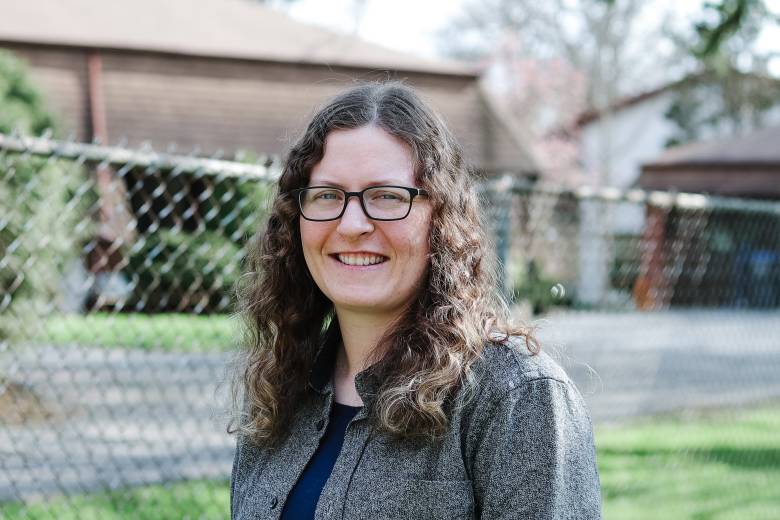
Alum Christina Dery is now a senior service designer at the Veterans Affairs Canada Innovation Hub.
With her own experiences in health care fuelling her passion to drive improvements in the field, to Christina Dery, the Design for Health program was personal.
Dery graduated from the Design for Health Master of Design (MDes) program in 2021. With an intake of about 15 dedicated students in each new cohort, the program is a little-known gem that plays an important role in the Canadian healthcare landscape.
Graduates gain knowledge in healthcare delivery, communications and research, create
“The Design for Health program meant a lot to me personally because my reason for committing to this work was a result of my own health and healthcare experiences,” says Dery.
“I have the utmost respect for anyone who works in health care and as a patient, I saw first-hand not only the issues arising from a patient perspective, but also the issues with the system that healthcare workers operate within. On both fronts, I wanted to figure out how to use my own skill set and passion to help improve the healthcare system.”
Now a senior service designer at the Veterans Affairs Canada Innovation Hub, Dery’s mission
“Design for Health was the path I needed to expand my skill set and refocus my career to one that aligned with my experiences and values,” she notes.
“Our work focuses on using a human-centred design approach and service design methodologies to work with people in designing solutions rather than for them. There’s a real shift in how people adapt and buy into change when
In 2021, Dery won an OCAD U medal for her graduate project, My Marathon. An integrated transition program, the project focuses on how to help youth transition from pediatric to adult healthcare services. Dery was recognized for her creativity, innovation, mastery of technique and high academic achievement.
“The space and opportunity to explore and learn supported me in developing into the designer and thinker I am today,” Dery expresses. “The various partnerships with real-world clients allowed us to explore and work through complex challenges.”
During Dery’s studies at OCAD U, the Design for Health program partnered with several health care organizations for real world impact.
“We partnered with SickKids, Healthcare Human Factors, C-CHANGE and for my final major research project, I partnered with Holland Bloorview Kids Rehabilitation Hospital to explore the complex issue of youth health care transitions from pediatric to adult care.”
Dery completed the
“Although it was challenging to make that shift, it also helped me think about the advantages of engaging with people and stakeholders outside of the in-person context that is so often limited to geographic location,” she explains. “The shift to virtual opened up opportunities for inclusion and access.”
Dery notes that Design for Health is important in the current Canadian health care system, as it supports the urgent need for innovative solutions and approaches to health care issues for both the patient and health care worker experiences.
“Healthcare is the one thing that we all need at various stages of our lives and should not be
With experiential learning and expanding skill sets in mind, Dery underlines the importance of designers within the health care landscape.
“Designers are well-positioned to facilitate and guide collaborative teams through a human-centred design process to uncover root causes, gain an understanding of what’s happening at various system levels and work together to pinpoint gaps and opportunities, and co-design solutions,” says Dery.
Applications for the fall 2023 program are open. Click here to learn more about Design for Health.